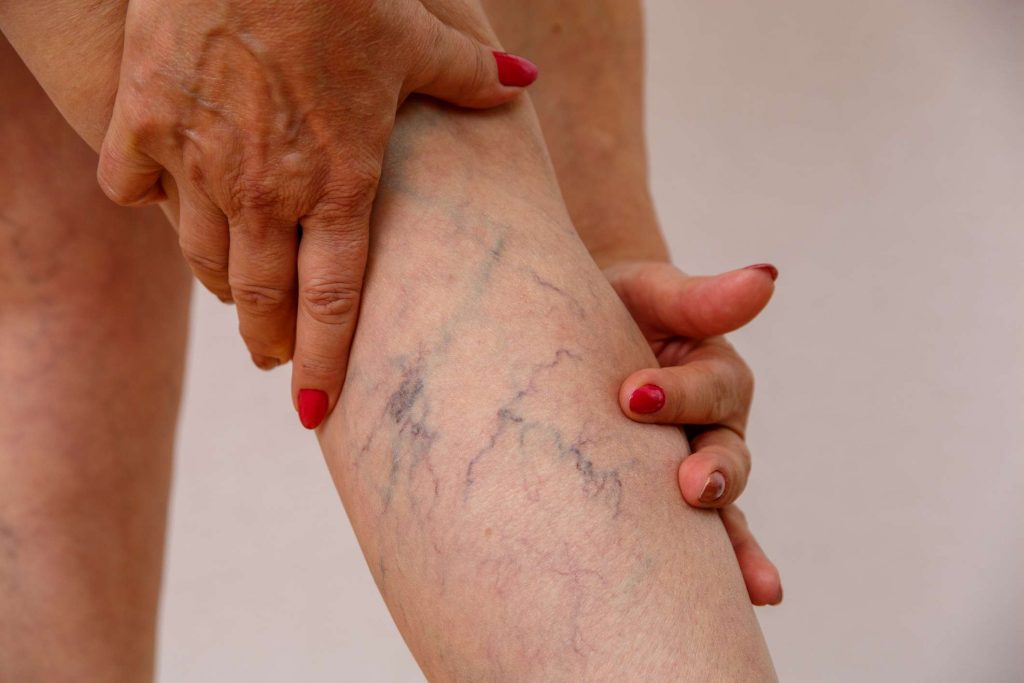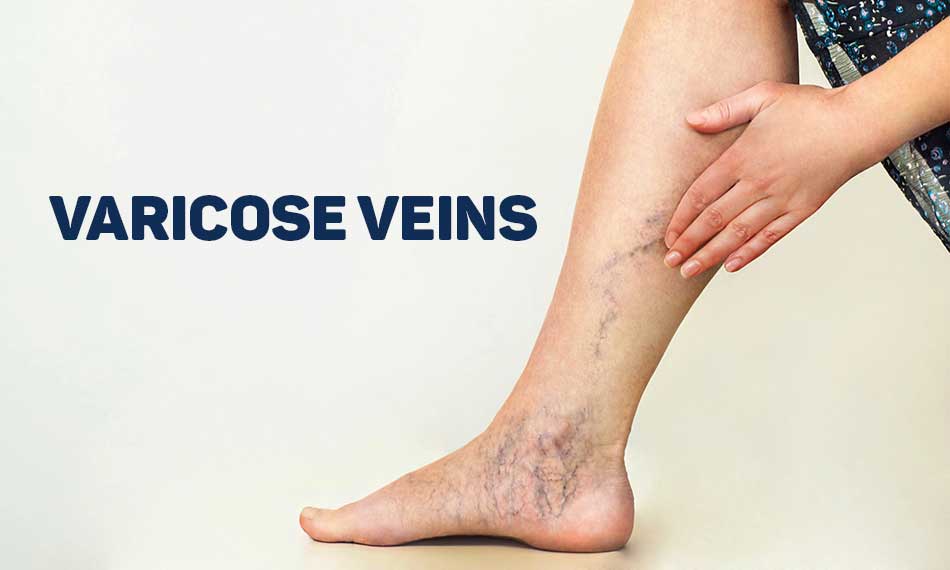Weak vein walls and valves will cause Varicose veins. Inside the veins, there are tiny one-way valves that will let blood to the heart. If any case these veins close the blood will not flow forward.
If the wall of veins gets stretched, it will lose elasticity so the result will make the valve weaken. Ultimately if valves do not work properly this will cause the blood to leak and it will flow backwards.
The main reason for varicose veins are below.
- Mainly on Female
- Family history
- Being overweight
- Mainly for older age
- For those who involve long standing jobs.
- For pregnant women

Varicose Veins Symptoms
- Pain in the legs
- Swollen and Enlarged Veins
- Visible Blue or dark purple Veins
- Lumpy, bulging or twisted Veins
- Heavy, Aching and Uncomfortable Legs
- Swollen Feet and Ankles
- Muscle cramp in the Night
- Itchy, thin and dry skin
Lifestyle
- Loose Weight
- Exercise Regularly
- Avoid standing for long periods, and try to move around every 30 minutes
- Try to raise your legs
- Take frequent breaks from sitting jobs.
- Increase Blood circulation
- Try certain herbal and dietary supplements
Foods to Avoid
- Refined Carbohydrates
- Added Sugar foods
- Salty Foods
- Alcohol.
- Fried foods
- Canned Foods
Foods to Eat
- Fruits
- Vegetables
- Nuts
- Whole Grains
- Herbs and Spices
- Fibre foods
- Bioflavonoids
- Celery
- Vitamin C
- Chia seeds or flaxseeds
- Blackberries
- Herbamare Low Sodium
- Avocados
- Ginger
- Beets
Supplements
Horse Chestnut tablets for varicose veins
An extract of freshly harvested horse chestnut seeds
FAQ
Early stage varicose veins symptoms
The initial signs of varicose veins are often subtle. You might notice slight discomfort in your legs, such as a heavy feeling or minor aching. The veins may appear darker in colour, usually blue or purple, and may begin to bulge slightly beneath the skin.
What causes varicose veins in legs?
Varicose veins are primarily caused by weak or damaged valves in your veins. When these valves fail to function effectively, blood can pool in the veins, causing them to expand. This condition can be exacerbated by factors like age, pregnancy, prolonged periods of standing, obesity, and a family history of varicose veins.
Are varicose veins dangerous?
While varicose veins are generally not a serious medical concern, they can cause discomfort and cosmetic concerns for some. However, in rare cases, they can lead to complications such as ulcers, blood clots, and vein inflammation. If your varicose veins cause you pain or you’re concerned about their appearance, it’s best to consult a healthcare professional.
Can varicose veins go away?
Varicose veins typically don’t disappear on their own. However, lifestyle changes like regular exercise, weight management, and avoiding long periods of standing or sitting can alleviate symptoms and prevent new varicose veins from forming. If you’re bothered by the appearance of your varicose veins, there are medical treatments available, including sclerotherapy, laser treatments, and surgery.

